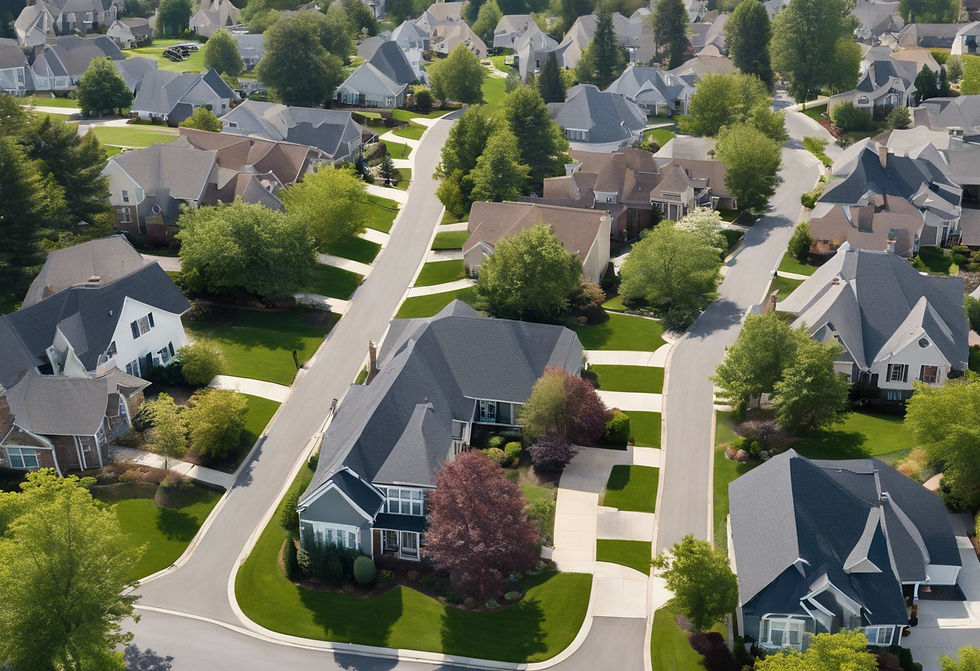How Crime Impacts Home Values: A Comprehensive Guide for Homeowners
- planb8133
- Dec 17, 2024
- 4 min read

When evaluating a home's worth, factors like location, square footage, and recent renovations are often the primary focus. However, a less obvious but equally significant factor can have a profound impact on property value: crime. The presence of crime in or around a property can lead to decreased market value, extended time on the market, and emotional distress for homeowners.
This guide explores how crime affects home values and provides actionable steps homeowners can take to mitigate these effects.
The Impact of Crime on Home Values
Crime can directly and indirectly affect a property's worth. Here’s how:
1. Negative Perception of the Neighborhood
Neighborhood Stigma: A crime, especially a violent one, can tarnish the reputation of an entire neighborhood. Potential buyers often associate such areas with safety concerns and reduced quality of life.
Buyer Fear: Many buyers are hesitant to move into a home where a crime has occurred, fearing for their safety and that of their families.
2. Reduced Property Appeal
Psychological Impact: The emotional toll of a crime can linger, making the home less appealing. Buyers may find it difficult to envision a future in a property tied to distressing events.
Physical Damage: Crimes like burglaries or vandalism often leave behind visible damage that can deter potential buyers.
3. Insurance Implications
Higher Premiums: Homes in high-crime areas may see an increase in insurance premiums, adding to buyer costs.
Difficulty Obtaining Coverage: In some cases, homeowners may struggle to secure coverage, further reducing buyer interest.
Murders and High-Profile Crimes: A Unique Challenge
Properties associated with murders or high-profile crimes face an even steeper decline in value due to the stigma.
Factors Affecting Value Decrease
Nature of the Crime: Sensational or violent crimes often have a more significant impact on value.
Media Attention: Extensive media coverage can amplify the stigma, making it harder to sell the property.
Local Market Conditions: A strong market may absorb some of the impact, while weaker markets see a more dramatic decrease.
Potential Value Loss
10–25% Decrease: Homes tied to a murder or violent crime often lose 10–25% of their value.
Longer Selling Times: These properties typically spend more time on the market.
How to Mitigate the Impact of Crime on Home Value
While it’s impossible to erase the past, homeowners can take proactive steps to restore their property’s appeal and minimize financial loss.
1. Transparency and Honesty
Full Disclosure: Be upfront about the history of the property. Many states legally require sellers to disclose past crimes to potential buyers.
Address Concerns: Provide clear, honest answers to buyer questions and reassure them about any steps taken to enhance the property.
2. Enhance Security Measures
Install Modern Security Systems: Adding alarms, surveillance cameras, and smart locks can reassure potential buyers.
Visible Security Features: Use features like motion-sensor lighting and visible security signage to deter future incidents and create a sense of safety.
3. Professional Cleaning and Repairs
Crime Scene Cleanup: Hire certified professionals to thoroughly clean and restore the home.
Repair Damage: Address any structural or cosmetic issues caused by the crime to improve the property’s appearance.
4. Strategic Marketing
Work with a Real Estate Agent: A knowledgeable agent can help craft a marketing strategy that emphasizes the home’s positive features.
Highlight Security Upgrades: Show prospective buyers how the property has been improved to ensure safety and comfort.
Lifeline Capital Group: Support for Homeowners in Crisis
For homeowners dealing with the aftermath of a crime, Lifeline Capital Group provides specialized services to restore properties and assist families. Their comprehensive support includes:
Crime scene cleanup
Relocation services
Restoration of the property
Expert resale strategies
By handling every aspect of recovery, Lifeline ensures families can move forward without the emotional and logistical burden.
Conclusion: Addressing Crime’s Impact on Home Values
Crime can leave a lasting mark on property values, but homeowners have options to mitigate the effects. By investing in security upgrades, making necessary repairs, and seeking expert guidance, you can restore your property’s appeal and minimize financial loss.
If you’re facing challenges due to a crime, consider working with specialized services like Lifeline Capital Group to ease the process.
FAQs about Crime and Home Values
1. Does crime always reduce home value?
Yes, but the extent depends on the nature of the crime, the neighborhood, and market conditions. In contrast, minor crimes may have a limited impact, violent or high-profile crimes often cause significant devaluation.
2. Can insurance premiums increase after a crime?
Yes, homes in high-crime areas often see higher premiums. Some properties may also face difficulty obtaining coverage.
3. How can I restore my home’s value after a crime?
Focus on security upgrades, professional cleaning, and consulting with a real estate expert to create a strong marketing strategy.
4. Are there companies that help with crime-affected properties?
Yes, Lifeline Capital Group specializes in assisting families with crime-affected homes, including cleanup, relocation, and resale.
5. Is it necessary to disclose a crime when selling a home?
In most states, yes. Sellers are legally required to disclose past crimes. Being upfront can build buyer trust.
6. How long does it take to sell a home affected by crime?
These properties often take longer to sell due to buyer hesitation. Proper marketing and restoration efforts can help reduce the time on the market.


